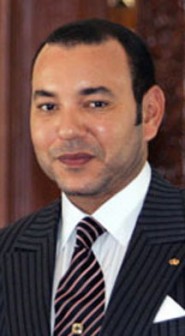MARRAKESH, Morocco, (Reuters) – Morocco’s King Mohamed announced a planned constitutional reform yesterday and appointed a committee to work with political parties, trade unions and civil society groups to draw up proposals by June.
The king, speaking in a televised address, said the reform would include plans for an independent judiciary, a stronger role for parliament and political parties and a regionalisation programme to devolve more powers to local officials.
The draft constitution that the committee proposes will be submitted to a referendum, the 47-year-old monarch added.
“The committee is encouraged to show resourcefulness and creativity in order to come up with an advanced constitutional system for Morocco, now and into the future,” he said.
Emboldened by pro-democracy pressures sweeping the Arab world, thousands of Moroccans protested last month for constitutional reform and an independent judiciary.
Morocco is officially a constitutional monarchy with an elected parliament. But the constitution empowers the king to dissolve the legislature, impose a state of emergency and have a key say in government appointments including the prime minister.

The monarch said the reform would make the judiciary independent, have a freely elected parliament with new powers, a government elected by parliament, a prime minister from the majority party and greater powers for political parties.
“The institutions concerned with good governance, human rights and protection of liberties” would be enshrined in the constitution, he said.
Saeed Binjebli, an organiser of the youth-led movement for change, said the speech should limit protests in the short-term but social woes could fuel more protests.
“This was a very bold speech,” he said. “The king responded favourably to all our demands on the constitutional front.”
But it did not address protesters’ criticisms of corruption or demands for release of political prisoners, he said.
Lahcen Daodi, a prominent deputy from main opposition Justice and Development Party, said: “With this speech Morocco has managed to pass with success the crisis that could have erupted from revolts in the Middle East.”
He said it was still unclear whether the prime minister would be able to appoint ministers for sensitive posts such as the interior ministry.
The constitution would also recognise the country’s multi-ethnic identity, a reference to the indigenous Amazigh believed to represent the majority of Morocco’s 32.6-million population. Arabic is currently the only official national language.




